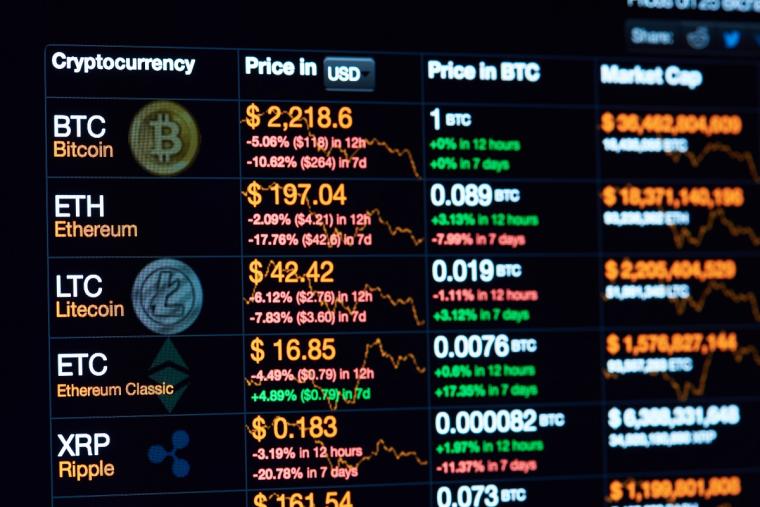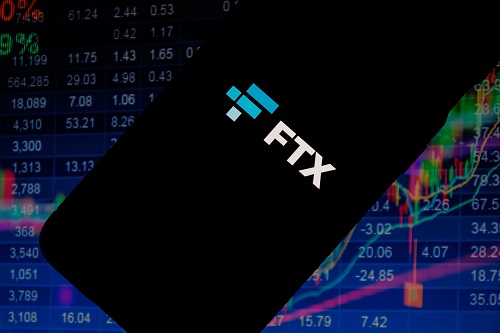
The seismic shift that occurred around the turn of the year when cryptocurrency platform FTX fell from grace has continued to make its aftershocks felt in the sports community as stadiums, arenas, NGBs, teams and even star athletes scramble to distance themselves.
According to reporters at Blockworks, the FTX logo was stripped from the Miami Heat’s arena in December. The MLB (who had cut a deal for umpires to wear FTX patches on their uniform) likewise cut ties with the collapsed crypto exchange.
Around the same time, Voyager Digital’s deal with the NBA’s Dallas Mavericks took a bad turn with that crypto company’s bankruptcy.
And that was just the start.
The Utah Jazz, who had briefly signed an agreement with FTX as the naming rights sponsor for their arena, announced they were going back to Delta (who had an agreement in place between 1991 and 2006 before the Jazz moved on to a new partnership with EnergySolutions, which was then replaced by Vivint in 2015.)
 And, said San Francisco-based SFist, it was not just pro sports that saw themselves out of money. Less than two years ago, FTX bought the naming rights for the Cal Bears football stadium. (Intended duration of sponsorship: 10 years. Actual duration: 450 days.) Berkleyside.org noted that prior to Thanksgiving 2022, “photos shared on social media appeared to show workers scrubbing off an FTX logo from the turf on California Memorial Stadium, formally renamed FTX Field at California Memorial Stadium in August 2021.”
And, said San Francisco-based SFist, it was not just pro sports that saw themselves out of money. Less than two years ago, FTX bought the naming rights for the Cal Bears football stadium. (Intended duration of sponsorship: 10 years. Actual duration: 450 days.) Berkleyside.org noted that prior to Thanksgiving 2022, “photos shared on social media appeared to show workers scrubbing off an FTX logo from the turf on California Memorial Stadium, formally renamed FTX Field at California Memorial Stadium in August 2021.”
The International Cricket Council signed a global partnership agreement with FTX but ICC has been actively removing all traces of the logo from its pitches.
The esports sector has also felt the shockwaves. Riot Games, developer of the massively popular League of Legends, is also seeking to distance itself from FTX, noting the company still owes it $6 million. TSM has likewise cut all ties.
The Golden State Warriors also gave notice that they were ceasing all activity with FTX.
It will take time to unwind all the red tape, as well as to remove the names of the crypto platform from every entity that had ever been a partner. CoinDesk compiled a listing of events that still showed the logo (though how much money would ever change hands again was debatable). The following two bullet points are direct quotes:
- In Abu Dhabi, attendees at the Gumball 3000 motor rally in November noted on social media that wristbands for the event and more than one of the vehicles bore FTX’s logo, as did advertisements around the city
- FTX sponsored the Formula 1 international racing team backed by Mercedes. While some fans reported that Mercedes’ car no longer sported the FTX logo at the Sao Paulo Grand Prix — held around the same time the firm filed for bankruptcy — many others pointed out that the team’s caps still prominently featured the company branding.
The stain of FTX (and Voyager and IQONIQ and 3Key Technologies and Ownix – as well as others) has caused concern in the sports space and has seen many shy away from sponsorship deals. And the horizon is not looking too bright for a few others, with Coinbase, Crypto.com and Blockchain.com having all announced layoffs in late January. Currency company Ethereum has plunged in value.
Columbia University sports management professor Joe Favorito told reporters at The New York Post he did not expect any major new crypto sponsorships to be announced for some time.
“What money hasn’t been spent already you’re going to see curtailed — just like we saw during the dot-com bubble,” he said.
Through the years, plenty of ill-fated sponsorship deals have been made, and certainly not all have been related to crypto. The Street carried an extensive list:
- The Washington Wizards and Washington Capitals built a stadium in downtown D.C. Telecom giant MCI quickly purchased the naming rights in 1997. But by 2002, MCI was being investigated by the FTC for fraud; ultimately, the stadium became CapitalOne Arena.
- In January 1999, the Baltimore Ravens struck a 20-year, $105.5 million deal with internet service provider PSINet, and the stadium in downtown Baltimore became known as the PSINet Stadium. (Wags who had purchased personal seat licenses, or PSLs, as they became known, were quick to re-christen the stadium “The PSL Net Bowl,” recognizing the steep prices they were paying). But by 2001, PSINet, having expanded too rapidly along with the rest of the dot-com economy, buckled under its own weight and filed for bankruptcy, leaving the Ravens with no choice but to remove the 12-foot-high neon letters after a court battle.
- Then there was Enron Field, home of the Houston Astros. The Street notes, “Enron is one of the most infamous business collapses in U.S. history, but lost in the annals of time is the company's 30-year, $100 million naming rights deal with MLB's Houston Astros that was signed in 1999. By 2002, the company's status as one of the most infamous corporate collapses ever had been cemented and its naming rights deal was in the waste heap. The Astros bought the naming rights for its stadium back from Enron for $2.1 million.”
But sketchy activity in any sector isn’t always a deterrent when someone waves a lucrative deal at advertisers. After all, FIFA signed a sponsorship deal for the 2022 World Cup with Crypto.com, and the Australian Football League has done the same, two agreements that remain in place.
For now.

